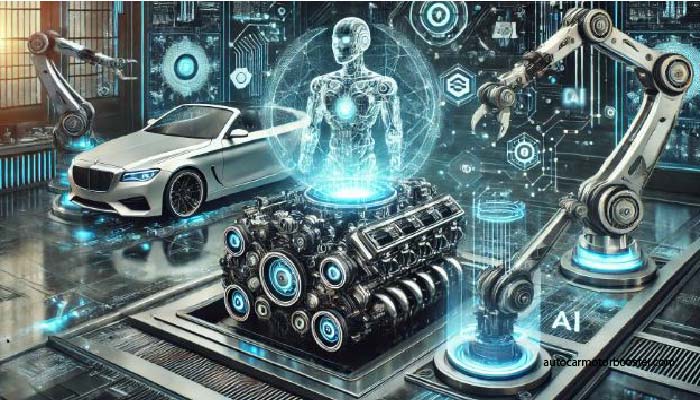In the rapidly evolving world of automotive technology, Artificial Intelligence (AI) is playing a significant role in shaping the future of engine boosting. Engine boosting refers to techniques and technologies used to improve the efficiency, power, and overall performance of an engine. Traditionally, performance enhancements in engines were achieved through mechanical modifications or upgrades, but with the integration of AI, the possibilities have expanded dramatically.
Understanding Engine Boosting
Before diving into AI’s contribution, it’s important to understand what engine boosting is. In simple terms, engine boosting involves increasing the intake air pressure of an engine to allow for a greater volume of air (and therefore fuel) to enter the cylinders. This results in more power output. Various technologies, such as turbochargers and superchargers, are used for this purpose.
However, achieving the optimal boost while maintaining engine health and fuel efficiency is no easy feat. This is where AI comes into play. AI leverages machine learning, real-time data analysis, and predictive algorithms to optimize engine performance in ways that were previously unimaginable.
How AI Enhances Engine Boosting
- Optimized Air-Fuel Mixture
One of the key challenges in engine boosting is maintaining the right balance between air and fuel. Too much fuel can lead to inefficient combustion, while too little fuel can cause the engine to underperform. AI-based systems analyze data from various sensors in real-time to constantly adjust the air-fuel mixture, ensuring optimal combustion. This not only boosts engine performance but also improves fuel efficiency and reduces harmful emissions. - Predictive Engine Tuning
AI can predict engine behavior by analyzing patterns in the engine’s performance data. Through machine learning algorithms, AI systems can anticipate how an engine will perform under different conditions, such as varying speeds, loads, and weather conditions. This predictive capability allows for the automatic adjustment of engine parameters to maximize performance while minimizing wear and tear. - Intelligent Turbocharging
Turbocharging is a popular method of engine boosting. AI algorithms can control the turbocharger’s boost pressure based on real-time engine data, improving responsiveness and power output. The AI can adjust the boost level for optimal performance, whether it’s during heavy acceleration or cruising at steady speeds. This precise control helps deliver better fuel efficiency and lower emissions. - Improved Cooling Systems
In high-performance engines, excessive heat can be detrimental to both performance and engine longevity. AI can optimize cooling systems by predicting when an engine is at risk of overheating. It can then adjust the cooling parameters accordingly, ensuring that the engine stays within its ideal temperature range. This capability not only boosts performance but also extends the lifespan of the engine. - Automated Diagnostics and Maintenance
AI-driven systems also contribute to proactive maintenance. By continuously monitoring engine performance, AI can detect potential issues before they become major problems. For example, AI can predict when parts are likely to wear out, allowing for timely repairs and reducing the likelihood of unexpected breakdowns. This predictive maintenance ensures that the engine continues to perform at its best, even under high-performance conditions.
The Future of AI in Engine Boosting
As AI continues to evolve, its potential to enhance engine boosting is limitless. With advancements in deep learning, neural networks, and data analytics, AI will be able to fine-tune engine performance with greater precision. Future engines may be able to adapt to their surroundings in real-time, adjusting not only to driving conditions but also to the driver’s habits and preferences.
Furthermore, AI’s integration with other emerging technologies such as autonomous driving systems will likely result in even more sophisticated engine optimization techniques. AI will help engines become more efficient, environmentally friendly, and responsive to dynamic road conditions, taking engine boosting to an entirely new level.
Conclusion
Artificial Intelligence is revolutionizing engine boosting, offering unprecedented levels of efficiency, performance, and predictive capabilities. From optimizing air-fuel mixtures to enhancing turbocharging systems and improving cooling efficiency, AI’s role in engine boosting is essential for the future of automotive technology. As AI continues to evolve, we can expect even more innovations that will make engines more powerful, efficient, and environmentally friendly.
FAQs
1. How does AI improve engine performance?
AI improves engine performance by analyzing real-time data and making continuous adjustments to parameters such as air-fuel mixture, turbocharging levels, and cooling systems. This leads to better efficiency, more power, and lower emissions.
2. Can AI help reduce engine wear and tear?
Yes, AI can predict potential engine issues before they become serious problems. By optimizing performance and enabling proactive maintenance, AI helps reduce engine wear and tear.
3. How does AI affect fuel efficiency?
AI optimizes the air-fuel mixture and adjusts engine parameters in real-time, leading to more efficient combustion. This not only boosts power output but also improves fuel efficiency and reduces emissions.
4. Is AI in engine boosting available in all vehicles?
Currently, AI-powered engine boosting is mainly found in high-performance and luxury vehicles, but as the technology advances, it is expected to become more widely available across different car models.
5. Will AI make engines more environmentally friendly?
Yes, AI can significantly reduce emissions by optimizing engine performance for maximum efficiency. By ensuring that engines burn fuel more effectively, AI helps minimize the environmental impact of automotive engines.
If Like This Article Visit Our Website. Collect From Wekiapedia
